#Milo and Tock
Explore tagged Tumblr posts
Text

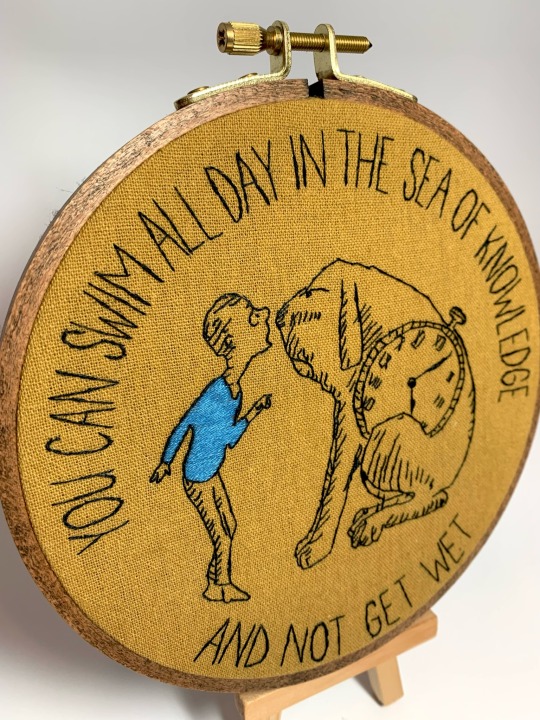

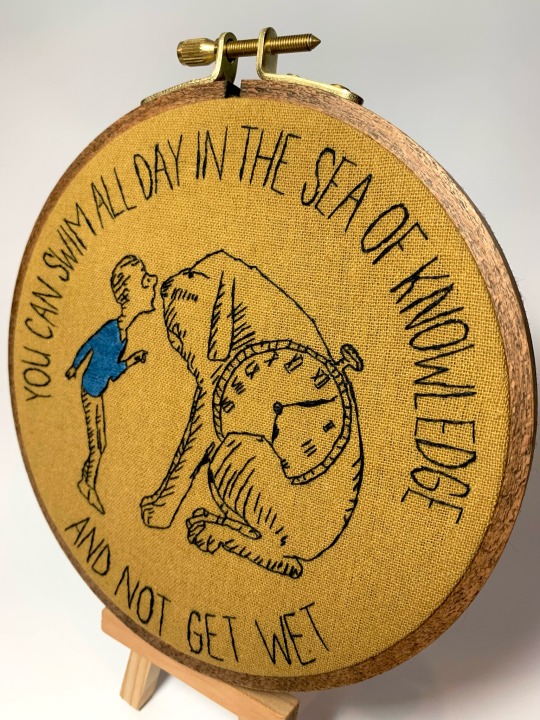
Milo and the OG Book Tock. ‘The Phantom Tollbooth’ was the first time I realized a book could be art. Never have I been more captivated and awed by words. There are many beautiful quotes in the book, but this one feels particularly relevant.
#the phantom tollbooth#Milo and Tock#embroidery#embroidery art#embroidery hoop#fiber art#the original book tock#kingdom of wisdom#rhyme and reason#the humbug#norton juster#booktok#idioms#puns
137 notes
·
View notes
Text
Time is a Gift - The Phantom Tollbooth (1970)
0 notes
Text
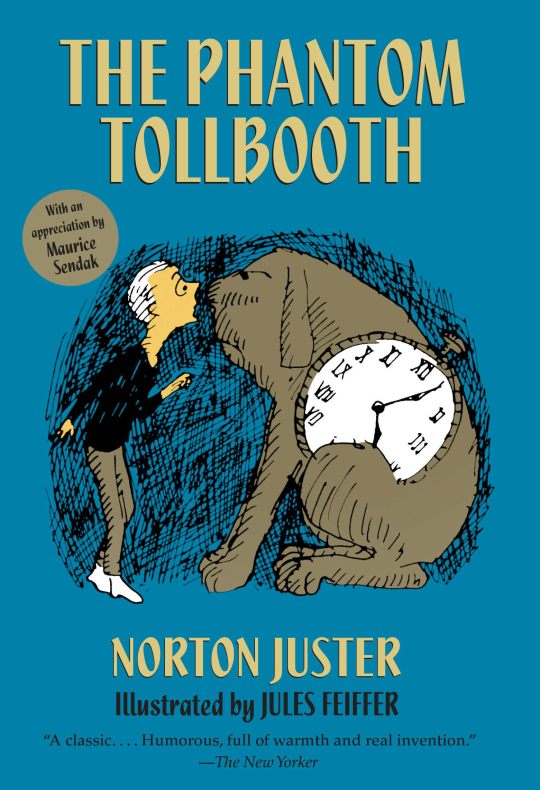
4 notes
·
View notes
Text
I recently got commissioned to do a modern recast of The Phantom Tollbooth. I decided to show you all my work.
This is done in the order in which you meet the characters.





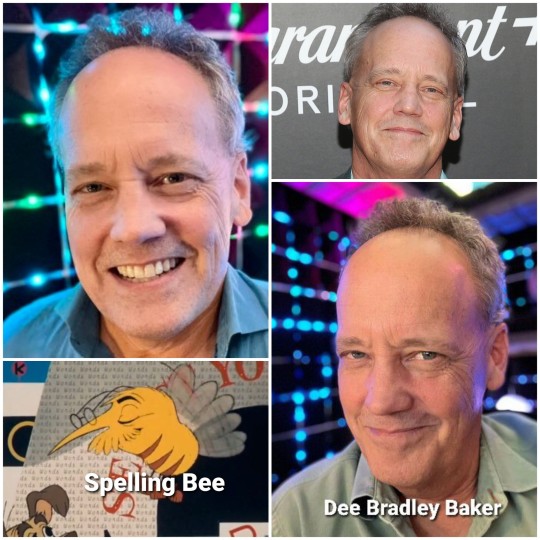
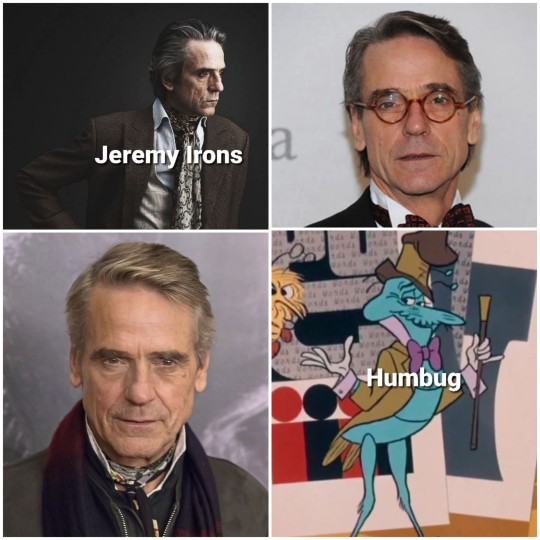
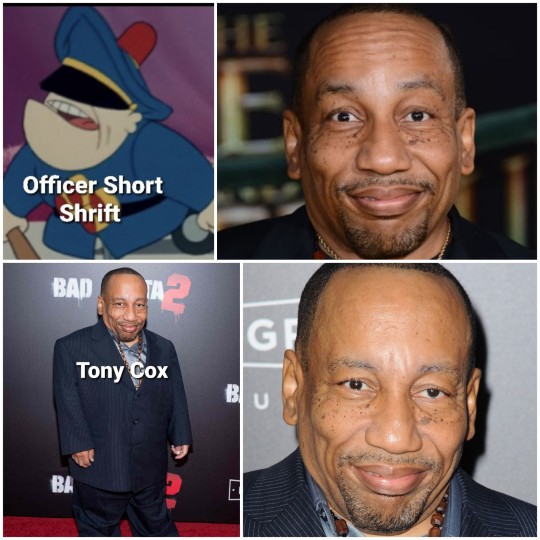

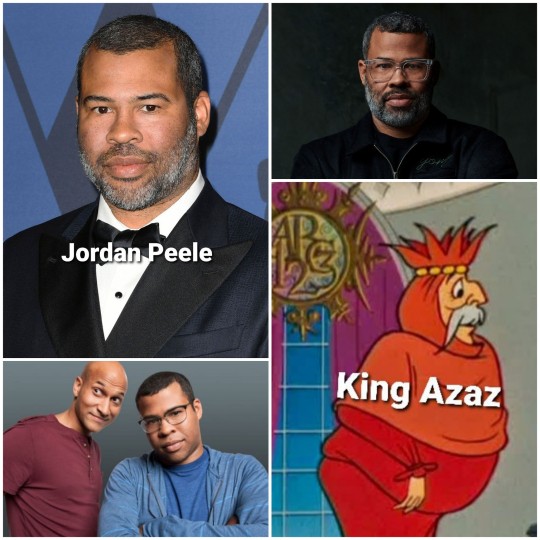
#the phantom tollbooth#milo#tock#whether man#the which#officer short shrift#spelling bee#king azaz#the kings cabinet#Undersecretary of Understanding#humbug#Duke of Definition#Earl of Essence#Minister of Meaning#Count of Connotation#lethagarians
6 notes
·
View notes
Text
TBR TAKEDOWN: GOODREADS, WEEK 12b
The Phantom Tollbooth by Norton Juster



I'm trying to trim down my tbr list(s) and I'm asking for your help! Descriptions and more info under the cut. Please reblog and add your thoughts!
* * * * *
Hailed as a classic. . . . humorous, full of warmth and real invention (The New Yorker), this beloved story—first published more than fifty ago—introduces readers to Milo and his adventures in the Lands Beyond.
For Milo, everything's a bore. When a tollbooth mysteriously appears in his room, he drives through only because he's got nothing better to do. But on the other side, things seem different. Milo visits the Island of Conclusions (you get there by jumping), learns about time from a ticking watchdog named Tock, and even embarks on a quest to rescue Rhyme and Reason Somewhere along the way, Milo realizes something astonishing. Life is far from dull. In fact, it's exciting beyond his wildest dreams. . . .
Date added: 2018
Goodreads: 4.20
Storygraph: 4.23
PRO:
(Seemingly) beloved children's classic that I completely missed!
Available from the library in my preferred format (audiobook)
Is short! (about 5 hours)
CON:
You never how well older childrens fiction is going to age, especially for an adult reader.
#be posts#tbr takedown#books#booklr#bookblr#book cover#poll#book poll#the phantom tollbooth#norton juster
17 notes
·
View notes
Text


drew starkey, homosexual, cis male + he/him, fighter «—◦—→ well met, calvin fitzhenry! the godling born child of cronus. it’s been twenty-nine years and now they have answered the song in their veins. can he change the course of history with their persistence, idealism, and flexibility? or will their impulsiveness, destructive, and insecurity hinder them? only time will tell before this godling’s name is sung into myth and legend!
name: calvin hitchcock fitzhenry. nicknames: cal, vin, fitz date of birth: may 23rd, 1994. age: 32. (two years claimed by atropos) face claim: drew starkey. godly parent: cronus. height: 6'2. dominant hand: right. education level: masters degree in finance. occupation: something he's avidly forgetting at camp.
parents: cronus, william fitzhenry, helen fitzhenry siblings: elizabeth fitzhenry, younger half-sister pets: milo, a dachshund puppy.
sexual orientation. homosexual. sexual position. verse.
clothing style: honestly the freedom of camp has led to so many wardrobe changes it's hard to put a specific style to him. it used to be suits. far too many suits.
what were they doing when they hear the song of their godling blood? asleep in his home office, part way through a sketch when the weariness of the day took him off to sleep.
class: fighter. inspirations: the inevitability of the passage of time, and the desperate attempts to change it's outcome. holding on to remnants of the past in the hopes to brighten the future.
bio:
he grew up on stories of super heroes, dashing and daring and brave in the face of adversity. life and home was simple, nothing special, but nothing to be disappointed at either. parents that cared for him, schoolwork that was maybe above average, but nothing to really write home about, and a head for art. he grew up dreaming of comic books, of life being something so much more than the day to day, of finding a job with a creative outlet.
but life decided for him that no, dreams come crashing down, and responsibility falls upon your shoulders too quick to get from beneath it's weight. life decided that as he aged, those childhood dreams were necessary to be set aside, and for that he at least held true to them in is time. he attended university, got a job, made a life for himself like he was supposed to. and time went on.
and on.
and then it didn't. then there was magic in the world. mystery. myth. legend.
and time was suddenly flowing entirely differently, and the future seems so much scarier. but so much more exciting than days spent with time tick tocking along.
9 notes
·
View notes
Text
This beloved story -first published more than fifty years ago- introduces readers to Milo and his adventures in the Lands Beyond. For Milo, everything’s a bore. When a tollbooth mysteriously appears in his room, he drives through only because he’s got nothing better to do. But on the other side, things seem different. Milo visits the Island of Conclusions (you get there by jumping), learns about time from a ticking watchdog named Tock, and even embarks on a quest to rescue Rhyme and Reason! Somewhere along the way, Milo realizes something astonishing. Life is far from dull. In fact, it’s exciting beyond his wildest dreams. . . .


2 notes
·
View notes
Text
When you are when when wh when u are finally when when u are fighting in a dennys and then watch a movie called The adventures of Milo and Otis
Do you think the clouds frown upon thy self? All the single ladies all the singles ladies woah oh oh oh woah oh oh oh ,who made that song
Do you think I should buy a fursuit and then scare small children who hate furries? They call me a responsible driver cause I am in a ditch oh my god my car its ruined this is not a dent how am I gonna fix it
Holy sjit is that you half life otis?
Ararrarrarrarararrararrararrarararrarararra five nights at fredberts
Five beers on the wall take one down pass it around four wines on the wallll!!!! Who decides fnaf character nicknames I was calling burntrap firetrap in the early days and then suddenly bruntrap that kinda lame of a name ngl. Where can I get a ikea shark I want one,cause I have this king frog thing with a zipper mouth I got in the only trip to ikea when I was 5.
Someone has to fight Steve Minecraft please I want to see him as many minecraft items.
Tick tock tick tock oh my it seems my watch broke
I hate Gordon Freeman he is a bitch I was told that by my furry Halloween costume from 2016
How long can this get
They call me the monster truck cabin kid cause I bee playing with ma toys and sharing and Charing
Is alyx pronounced Alex or al-k like a messed up elk
How long do snakes live on average for a small pet store snake?
Can someone answer everything here
When did people decide furries were "gross" was it a trend that people feel to nervous to defend furries or is it misguided?
Should I make komodo's comic a story instead or something? Like five chapters is one story chapter or more chapters are needed?
Respect to anyone who actually reads this full thing as I'm bored and I'm typing whatever the fuck I want idc
Kleiner I wish I could kill one for you my cat carriercore little guy Kleiner should have won against spy I'm sorry but gqbe newwel told me this
#Uuhhhhhhhh....#Sometimes I get bored and type my thought process#Hi gmanweatherreport!#I'm not gonna put this in my normal tagw...
6 notes
·
View notes
Text
Why are so many memes actually about gay sex? Off the top of my head, and recently, we had dreamybull, tick tock tf2 mercs, anamin studios, and then there was naked fat ass Broly, which turned into not naked but still fat assed Omni-Man, and who could ever forget about Ricardo Milos? And all the cropped gay porn. It’s just buff gay men, as far as the eye can see. Why is that?
2 notes
·
View notes
Text
Phantom Tollbooth Debriefing I
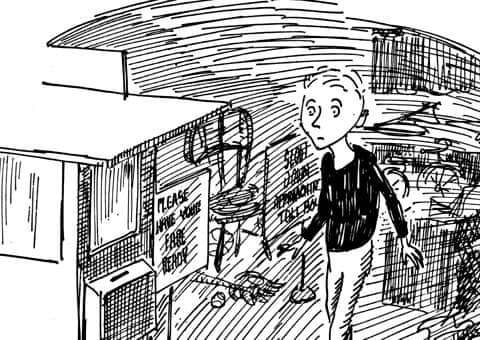
Visiting the New York Times page no longer feels mundane but magical because of reading with my niece.
Why? Our goal was Chapter 5; awaiting her arrival (she lives in WA), I visited Connections. Right above it was "Spelling Bee"... and all it conjured was Chapter 4. The fact "Wordle" came next only reinforced it.
Jaina decided to make it a series of questions based on the chapters; this post details hers. (Mine to come separately.)
Chapter 1
What do you think Milo was thinking about when he was building his tollbooth? Do you think he was excited, nervous, or any other emotions?
Chapter 2
The Whether Man says he's not a weather man and when Milo drives away in his car, he sees a cloudburst only raining on the Whether Man. Do you think that means the Whether Man is actually a weather man? Why do you think there was a cloud over him?
Chapter 3
What are the names of the 5 men who all say different words that mean the same thing?
Were the king's advisors' words descriptive or dull and bland?
Chapter 4
"So many words... from every place imaginable and some places beyond that."
What places do you think they could come from? Since they say every place imaginable, use your imagination! :)
[This girl is something else]
Chapter 5
When the police man is talking to Milo and Tock, why do you think he is so strict? Do you think he has had many encounters with people like Milo and Tock?
Aiming to avoid Actaeon's error (and fate), Parzival
The song that popped and played in my head when I started this post (3 hours ago)
What felt fitting and most calling to hear (and heed) 1 2 3 4 5 6 (through 12)
0 notes
Text
"It's not what's behind that worries me," remarked Tock as they stepped from the sticky mess, "but what's ahead."
"Keep going straight! Keep going straight!" counseled the voice as they continued to pick their way carefully along the new path.
"Now step up! Now step up!" it recommended, and almost before they knew what had happened, they had all taken a step up and then plunged to the bottom of a deep murky pit.
"But he said up!" Milo complained bitterly from where he lay sprawling.
"Well, I hope you didn't expect to get anywhere by listening to me," said the voice gleefully.
"We'll never get out of here," the Humbug moaned, looking at the steep, smooth sides of the pit.
"That is quite an accurate evaluation of the situation," said the voice coldly.
"Then why did you help us at all?" shouted Milo angrily.
"Oh, I'd do as much for anybody," he replied; "bad advice is my specialty. For, as you can plainly see, I'm the long-nosed, green-eyed, curly-haired, wide-mouthed, thick-necked, broad-shouldered, round-bodied, short- armed, bowlegged, big-footed monster—and, if I do say so myself, one of the most frightening fiends in this whole wild wilderness. With me here, you wouldn't dare try to escape." And, with that, he shuffled to the edge of the pit and leered down at his helpless prisoners.
Tock and the Humbug turned away in fright, but Milo, who had learned by now that people are not always what they say they are, reached for his telescope and took a long look for himself. And there at the rim of the hole, instead of what he'd expected, stood a small furry creature with very worried eyes and a rather sheepish grin.
“Why, you're not long-nosed, green-eyed, curly-haired, wide-mouthed, thick-necked, broad-shouldered, round-bodied, short-armed, bowlegged, or big-footed—and you're not at all frightening," said Milo indignantly. "What kind of a demon are you?"
The little creature, who seemed stunned at being found out, leaped back out of sight and began to whimper softly.

"I'm the demon of insincerity," he sobbed. "I don't mean what I say, I don't mean what I do, and I don't mean what I am. Most people who believe what I tell them go the wrong way, and stay there, but you and your awful telescope have spoiled everything. I'm going home." And, crying hysterically, he stamped off in a huff.
"It certainly pays to have a good look at things," observed Milo as he wrapped up the telescope with great care.
— From “The Phantom Tollbooth” by Norton Juster, illustrated by Jules Feiffer
0 notes
Text
Maps
The way we talk about landscapes can evoke spiritual lessons. Drawing from sacred text and from The Phantom Tollbooth by Norton Juster, this sermon examines mindfulness, resilience, and choices. This sermon was updated for The Unitarian Society in East Brunswick on June 16, 2024.
When I was a young adult, I liked to take road trips to visit friends. Those were the waning days of the paper “Triptik” maps from AAA. If you requested one in advance or went into the office, they would have these narrow maps, bound together at the top like a flipbook, with your route highlighted. They would add blue stamps to show things like “construction passable” and “speed laws rigidly enforced.” They would include detailed inset maps for places you wanted to stop on the way.
I really appreciated that service. I have a terrible sense of direction. I don’t necessarily understand geography, but I do understand stories. The Triptik was like a story. Maps gave me enough confidence to make the story my own.
These days, a GPS application on my phone is a daily essential, though I do sometimes defy the instructions. I rarely use paper maps while driving, but I still feel nostalgic about the Triptiks. I like having enough guidance to make pretty good decisions, but not so much guidance that my spirit of adventure is stifled. I want to be both informed and free as I choose my path. Is this starting to sound like UUism? We gather wisdom for a free and responsible spiritual journey.
Maps of the roads in the real world help us to manage our physical expeditions. Sacred text and fiction both give us signposts for our spiritual journeys, travel guides about meaning-making encoded by people who have gone before us. Sacred writing often uses metaphors from the landscape to frame our thinking about the search for meaning.
Literature also has a lot to say about the experience of being human. Some fiction books use maps to convey that wisdom. If you are familiar with the Lord of the Rings trilogy by J. R. R. Tolkien, the Narnia series by C. S. Lewis, or the Earthsea series by Ursula K. LeGuin, you know that the maps in those books are part of the story. I’ll be drawing today from The Phantom Tollbooth by Norton Juster, in which a map of an imaginary world gets the plot moving.
Often, when I tell folk tales, I say that I don’t know if the story happened exactly this way, but I believe it’s true. With fictional maps and sacred writings about terrain, I don’t know if the road leads exactly this way, but I believe it’s true. Metaphorical landscapes have a lot to teach us. Some of the most prominent metaphors are islands, mountains, and roads. Let’s go.
Islands: Be Here Now (wherever “here” is)
In The Phantom Tollbooth, there is a point in the story when Milo, the protagonist, finally has a clear sense of mission. He is joined by a watchdog named Tock and an insect diplomat called Humbug. Milo is driving a toy car and holds a map of the land, which he doesn’t necessarily consult.
The shoreline was peaceful and flat, and the calm sea bumped it playfully along the sandy beach. In the distance a beautiful island covered with palm trees and flowers beckoned invitingly from the sparkling water.
“Nothing can go wrong now,” cried the Humbug happily, and as soon as he’d said it, he leaped from the car, as if stuck by a pin, and sailed all the way to the little island.
“And we’ll have plenty of time,” answered Tock, who hadn’t noticed that the bug was missing—and he, too, suddenly leaped into the air and disappeared.
“It certainly couldn’t be a nicer day,” agreed Milo, who was too busy looking at the road to see that the others had gone. And in a split second he was gone also.
He landed next to Tock and the terrified Humbug on the tiny island, which now looked completely different. Instead of palms and flowers, there were now only rocks and the twisted stumps of long-dead trees. It certainly didn’t seem like the same place they had seen from the road.
The group finds that their accidental destination is quite crowded, with more people arriving all the time. When they ask the right questions, a local guide explains that they are on the Island of Conclusions. It’s very easy to jump to conclusions; however, “You can never jump away from conclusions. Getting back is not so easy.” They find out that the only way back from the island is to swim through the Sea of Knowledge, for what seems like hours.
Once they are back on the shore, Milo declares, “from now on I’m going to have a very good reason before I make up my mind about anything. You can lose too much time jumping to Conclusions.” (p. 164-170)
In The Phantom Tollbooth, that particular island represents a place completely separate from where they meant to be. It is a place that looks better from a distance. The detour turns out to be a learning experience, but only after considerable effort.
In sacred text, sometimes islands represent places that are remote or separate. Whether that’s a good thing depends on the context. In one Buddhist text (Digha Nikaya, 16:33-35), we read:
Make an island of yourself,
make yourself your refuge;
there is no other refuge.
Make truth your island,
make truth your refuge;
there is no other refuge.
This passage expresses the futility of taking cover in illusions and distractions. Buddhism teaches that pain is part of life. By overcoming attachments to desire and sorrow, by mindful awareness of the difference between embodiment, thoughts, and feelings, the Buddha is saying that people can escape from the cycle of suffering in birth and death. The island, in this case, is a good thing. It separates the practitioner from the false promises and detours that prevent people from facing the reality of this world. In a way, both Buddhism and The Phantom Tollbooth teach non-attachment to easily reached conclusions, they just use opposite metaphors for the location of the true path.
On the other hand, islands may represent something on the horizon or something unknown. Sometimes separation from the people around us or from the path already under our feet isn’t the ideal. In his journal in April of 1859, Henry David Thoreau wrote, “You must live in the present, launch yourself on every wave, find your eternity in each moment. Fools stand on their island opportunities and look toward another land. There is no other land; there is no other life but this, or the like of this.” (Henry David Thoreau, Journal Vol. 12, April 24, 1859)
Thoreau is saying that this moment, this time, this place is more important than the palm trees that beckon on the horizon. The Island of Conclusions looked lovely from a distance but was not the right direction. Being present, paying attention to the path we’ve committed to, can help keep us connected to the ground of truth.
Whether islands represent the refuge of truth that separate us from illusions or islands represent distractions in the distance might depend on where the writer is from. Metaphorical landscapes are drawn from a certain point of view. Whether we’re from one shore or the other or the water in between, paying attention to the present moment helps to keep us on the path.
Mountains: Obstacles and Challenges
Another feature that pops up in fictional maps is mountains. In novels, mountains can mark boundaries, provide the perspective of height, or contain an underground civilization. Sometimes, as in The Phantom Tollbooth, mountains represent a set of challenges that the main characters have to overcome. Looking through a spiritual lens, fiction and sacred text often communicates something about the meaning of obstacles.
In The Phantom Tollbooth, Milo and his companions have to travel through the demon-infested Mountains of Ignorance in order to restore Princess Rhyme and Princess Reason with their rightful thrones. They have reached a temporarily flat place in the path, and have come across an elegant gentleman with a completely blank expression: “neither eyes, nor nose, nor mouth.”
“I wonder if you could spare me a little of your time,” he inquired politely, “and help with a few small jobs.”
“Why, of course,” said the Humbug cheerfully.
“Gladly,” added Tock.
“Yes, indeed,” said Milo, who wondered for just a moment how it was possible for someone so agreeable to have a face with no features at all.
“Splendid,” he said happily, “for there are just three tasks. Firstly, I would like to move this pile from here to there,” he explained, pointing to an enormous pile of fine sand; “but I’m afraid all I have is this tiny tweezers.” And he gave them to Milo, who immediately began transporting them grain at a time.
Similarly, the man asks Tock to move all of the water from one well to another using an eyedropper. He puts the Humbug to work drilling a hole through a cliff using a needle. The group engages in these tasks for hours before stopping to figure out how long they will take: eight hundred thirty-seven years. They confront the man about the purpose of these jobs.
“Because, my young friends,” he muttered sourly, “what could be more important than doing unimportant things? If you stop to do enough of them, you’ll never get to where you’re going.” He punctuated his last remark with a villainous laugh.
“Then you must—“ gasped Milo.
“Quite Correct!” he shrieked triumphantly. “I am the Terrible Trivium, demon of petty tasks and worthless jobs, ogre of wasted effort, and monster of habit.”
The travelers must overcome several demons in the mountains. “And all had only one thought in mind: destroy the intruders and protect Ignorance.”
The Phantom Tollbooth teaches that sometimes we collude with our own impediments. In spiritual terms, we can fail to recognize unintended harm from our own actions, and we can fail to recognize evil when it behaves politely. Ideally, faith traditions and communities help us to open our hearts with compassion so that we see and feel when harm has been done. Established paths can frame a process for reconciliation, leading us to the next step in the spiritual adventure.
Mountains can also represent challenges or obstacles in sacred texts such as the Hebrew Bible. One mark of a good leader is how well the team functions in the leader’s absence. In the story of Moses, two different experiences of mountains show a certain kind of progress. When Moses goes up the mountain to receive the tablets of the law, his people don’t behave very well. At the end of his life, though, when he goes up the mountain to look over into the promised land, his people are ready to proceed without him.
Incidentally, I’ll be working remotely for the rest of this month, and then away for vacation and study leave for six weeks in July and August. I have great faith in this congregation to keep things going and to make choices in accordance with your values. The summer is a time for experimentation and lay leadership, and I look forward to hearing about what you discover.
Elsewhere in the Hebrew Bible, mountains indicate the kinds of obstacles that will no longer be in our way in times to come. When we have found peace and unity with the holy and with each other, “Every valley shall be lifted up, and every mountain and hill be made low; the uneven ground shall become level, and the rough places a plain.” (Isaiah 40:4.) Later, the prophet Isaiah (49:8-11) goes into more detail:
This is what the LORD says:
“In the time of my favor I will answer you,
and in the day of salvation I will help you;
I will keep you and will make you
to be a covenant for the people,
to restore the land
and to reassign its desolate inheritances,
to say to the captives, ‘Come out,’
and to those in darkness, ‘Be free!’
“They will feed beside the roads
and find pasture on every barren hill.
They will neither hunger nor thirst,
nor will the desert heat or the sun beat down on them.
He who has compassion on them will guide them
and lead them beside springs of water.
I will turn all my mountains into roads,
and my highways will be raised up.
When I read in the Hebrew Bible about the world to come, I don’t interpret it as a prediction of the future, but a suggestion by mortal writers of the kind of world we can work toward. I find energy for that work in spiritual sources, but positive outcomes need human involvement. In this passage, I hear a vision for justice restored, for freedom, for an end to hunger and poverty. “I will turn all my mountains into roads,” to me, means that removing obstacles that block justice is a sacred calling.
Mountains can mean a lot of things in the landscape of fiction or sacred text. When they represent challenges to overcome, we may learn something about human fallibility, and about removing obstacles for the sake of future generations.
Roads: Invitations to Make Choices
So far, I have mentioned islands and mountains as some of the things we find on maps. For many of us, roads are the most relevant feature. In fiction and in sacred text, roads offer choices: this way or that way, on the beaten path or off it. Here we see a great advantage to maps over simple turn-by-turn directions: maps give you alternatives.
Unitarian Universalism is a tradition that honors freedom in the search, but it’s a freedom paired with responsibility and equipped with the wisdom of a 500-year-old history. In other words, we have a map, not a simple set of instructions.
Simple instructions do have their place. As I said, the GPS application on my phone is essential. I love not being lost all the time. But it’s not perfect. Sometimes it takes a few weeks for the map to catch up with new construction. Sometimes I misunderstand the directions, and I end up taking the scenic route as I find the next exit and turn around and try again.
Then there was the time when I was guest preaching in Philadelphia, and one of the roads close to the church was flooded. I could not get the GPS to give me an alternate route that avoided the flood, and I hadn’t thought to bring any of the three maps of the city I had at home. Luckily, my friend at the church called me and guided me through the deluge, late for sound check but on time for the service. The default solution can be fast and easy, but sometimes you need to empower yourself with alternatives.
The Tao te Ching (41, excerpted) has some thoughts about this:
The path which is bright appears to be dark.
The path which goes forward appears to fall backward.
The path which is level appears uneven.
Great virtue appears like a valley.
Great purity appears like disgrace.
Far-reaching virtue appears as if insufficient.
Solid virtue appears as if unsteady.
True substance appears to be changeable.
In other words, the road is not always what it seems at first glance. One of the gifts of a spiritual life is sharpening perceptions about which path is the right one for that moment, despite appearances. By “the right path,” I mean the path that is congruent with our values primarily, and that keeps us moving in the direction of our mission. And it’s not always easy to figure out what that right path is. Some of the beauties of this world are subtle, revealing themselves when we can look beyond the default.
In The Phantom Tollbooth, the experience of being on a journey helps Milo to sharpen his perceptions. At the beginning of the book, he is a boy with no interest in anything. “Wherever he was he wished he were somewhere else, and when he got there he wondered why he’d bothered.”
After returning from his trip, Milo misses the people he met in the Lands Beyond
And yet, even as he thought of all these things, he noticed somehow that the sky was a lovely shade of blue and that one cloud had the shape of a sailing ship. The tips of the trees held pale, young buds and the leaves were a rich deep green. Outside the window, there was so much to see, and hear, and touch—walks to take, hills to climb, caterpillars to watch, as they strolled through the garden. There were voices to hear and conversations to listen to in wonder, and the special smell of each day.
Roads represent choices. Maps, whether they are fictional or spiritual, give us a sense of what those choices are and the richness of the landscape around us as we go.
Conclusions
To my mind, maps for the spiritual journey aren’t about hurrying to a destination like bliss or perfect understanding or a promised reward. Maps come in the form of sacred text, poetry, and the stories of our companions on the path. They awaken us to possibility, to the richness of this moment, and to hope for what our struggle on this path might mean for those who come later.
In your travels, whether we find ourselves on the mainland or the island, let us look past distractions to be present to the path of our intention. We will all climb against challenges. May we quickly recognize the roadblocks we put up for ourselves, and may we find our place in leveling the path for others. When the road invites a decision, may we choose mindfully.
So be it. Blessed be. Amen.
1 note
·
View note
Text
The Phantom Tollbooth by Norton Juster played with language in ways that I stick with me today. From Milo's first stop in the lands beyond, Expectations with its Whether Man:
"Expectations is the place you must always go to before you get to where you're going" ... "I'm the Whether Man, not the Weather Man, for after all it's more important to know whether there will be weather than what the weather will be."
To the markets of dictionopolis:
"Well, money doesn't grow on trees, does it?" ... "Why not words?"
To how you get to the Island of Conclusions:
"But how did we get here?" asked Milo, who was still a bit puzzled by being there at all. "You jumped, of course," explained Canby.
This is just some small excerpts pulled from the book on my bedside because its got that lovely wordplay. Milo's sidekick in the story is a watchdog ("...a large dog with a perfectly normal head, four feet, and a tail- and the body of a loudly ticking clock") named Tock who goes tickticktickticktick. The plot of the story as they wander the Kingdom of Wisdom (just off the sea of knowledge) is to rescue the Princesses of Rhyme and Reason, without whom the kingdom is falling apart. Its a delightful story with lovely illustrations and its up there with Discworld and Young Wizards as one of the series that made me appreciate reading and wordplay as a kid.
Tell me about a turn of phrase that introduced you to the power of language, especially if it comes from a source that most people disregard.
I'll start: one of the first times I really fell in love with a line from a song was when I heard "I'd Really Love To See You Tonight" on the radio.
The chorus goes:
I'm not talking about moving in
And I don't want to change your life
But there's a warm wind blowing the stars around
And I'd really love to see you tonight
I have been obsessed with the line "there's a warm wind blowing the stars around" since I was something like 6 years old. It's so beautifully economic in its word use, isn't it? You know that the night is clear and beautiful, it's windy but warm, it's a perfect night for being outside and looking at the sky. In eight words, even as a small child, I had a perfect mental image of what that night looks like.
The other one that always comes to mind is the Muppet Christmas Carol song "It Feels Like Christmas," for one line only:
It is the summer of the soul in December
The "s" sound in summer, soul, and December all fall on the beat. It is a perfect example of using consonance (as opposed to alliteration, which would require those sounds to all be at the start of the word) in lyrics or poetry, and is one of the first times I really remember that concept sticking in my mind. (I use consonance very heavily in my poetry, so that's, like, formative.)
Tell me about the language that showed you what language can do - and for my sanity, please make it cool stuff and not like "and that's how I learned how shitty propaganda works," bc while that is in fact part of how language works, this is Tunglr dot com and I'd prefer to have a nice time today. Thanks.
2K notes
·
View notes
Text
I recently got commissioned to do a modern recast of The Phantom Tollbooth. I decided to show you all my work.
This is done in the order in which you meet the characters.


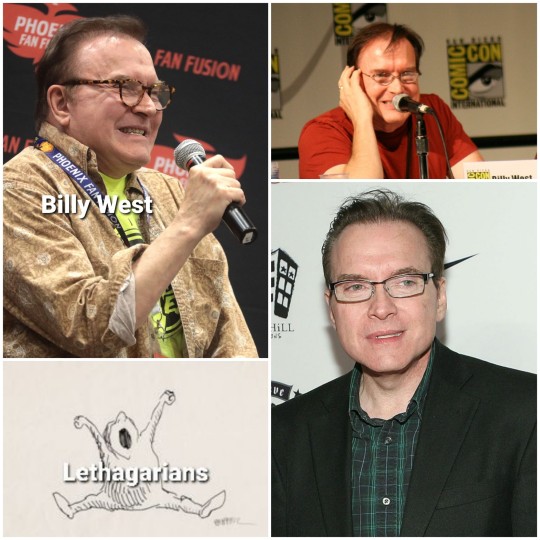

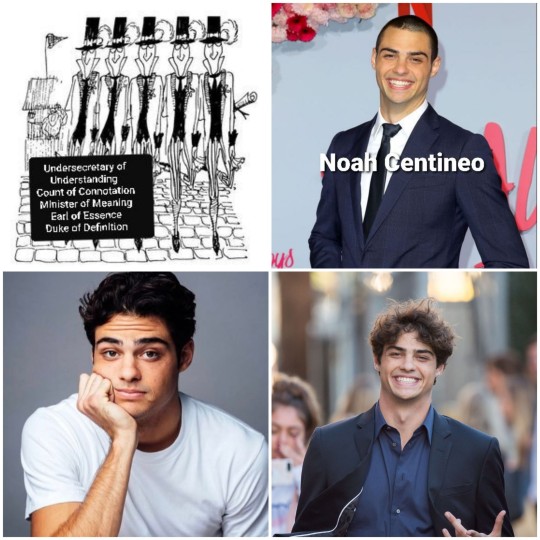

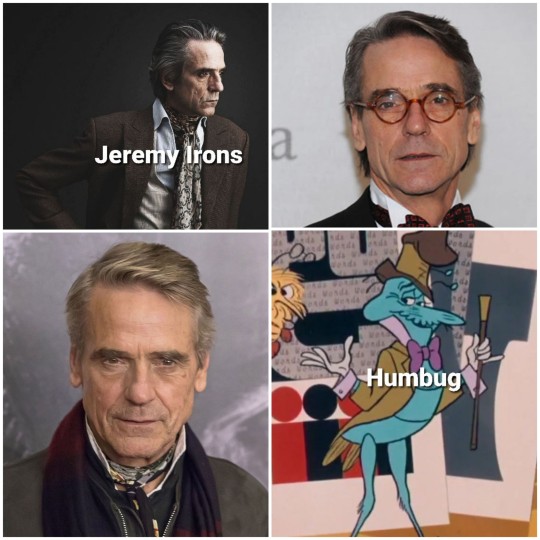
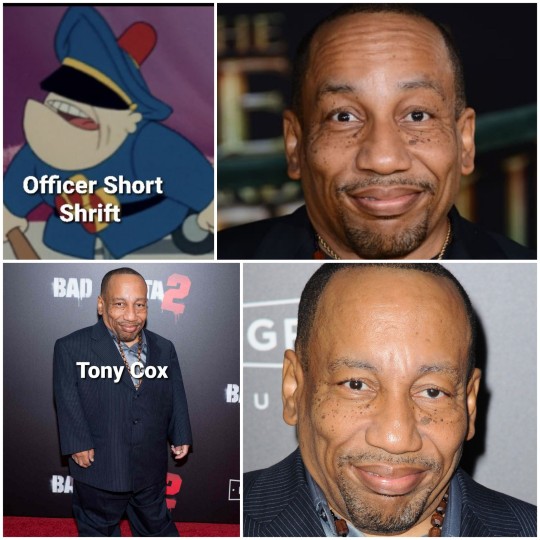

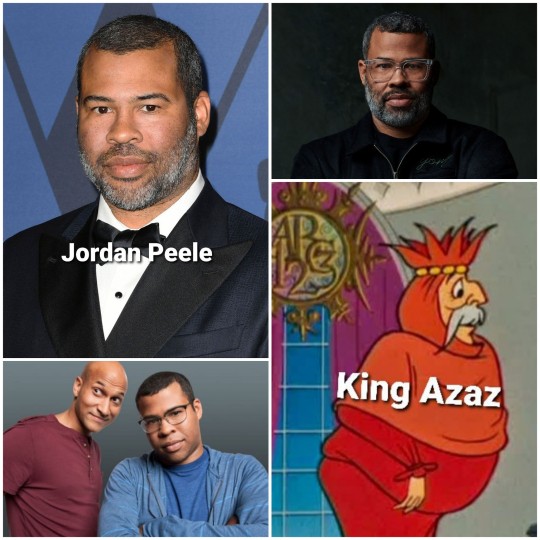
#the phantom tollbooth#milo#tock#whether man#the which#officer short shrift#spelling bee#king azaz#the kings cabinet#Undersecretary of Understanding#humbug#Duke of Definition#Earl of Essence#Minister of Meaning#Count of Connotation#lethagarians#callan Barry#mel Brooks#stephen russell#billy west#jk simmons#Noah Centineo#jordan peele#helen mirren#dee bradley baker#jeremy irons#tony cox#faintly macabre the not so wicked which
0 notes
Text

Workin on the crew!
#my posts#my art#the phantom tollbooth#milo#tock#the humbug#going more off the book illustrations cause I never saw the old 70's movie
14 notes
·
View notes
Text










recently reread this book (and watched the movie for the 1st time)
#boys art#doodles#the phantom tollbooth#milo#tock#humbug#spelling bee#officer short shrift#dodecahedron#mathemagician#.58#alec bings#terrible trivium#chroma the great#canby#soundkeeper#rhyme#reason#dr. kakofonous a. dischord#the awful DYNNE#look at me makin new tags#norton juster#dictionopolis#digitopolis#conclusions#castle in the air#infinity#mountains of ignorance#valley of sound#forest of sight
152 notes
·
View notes